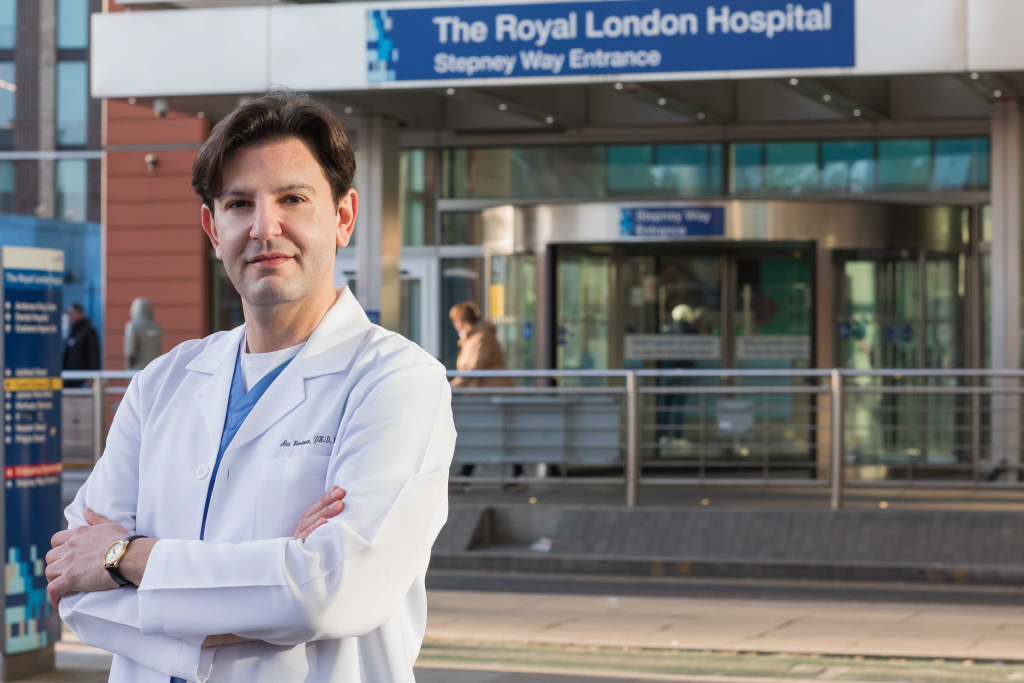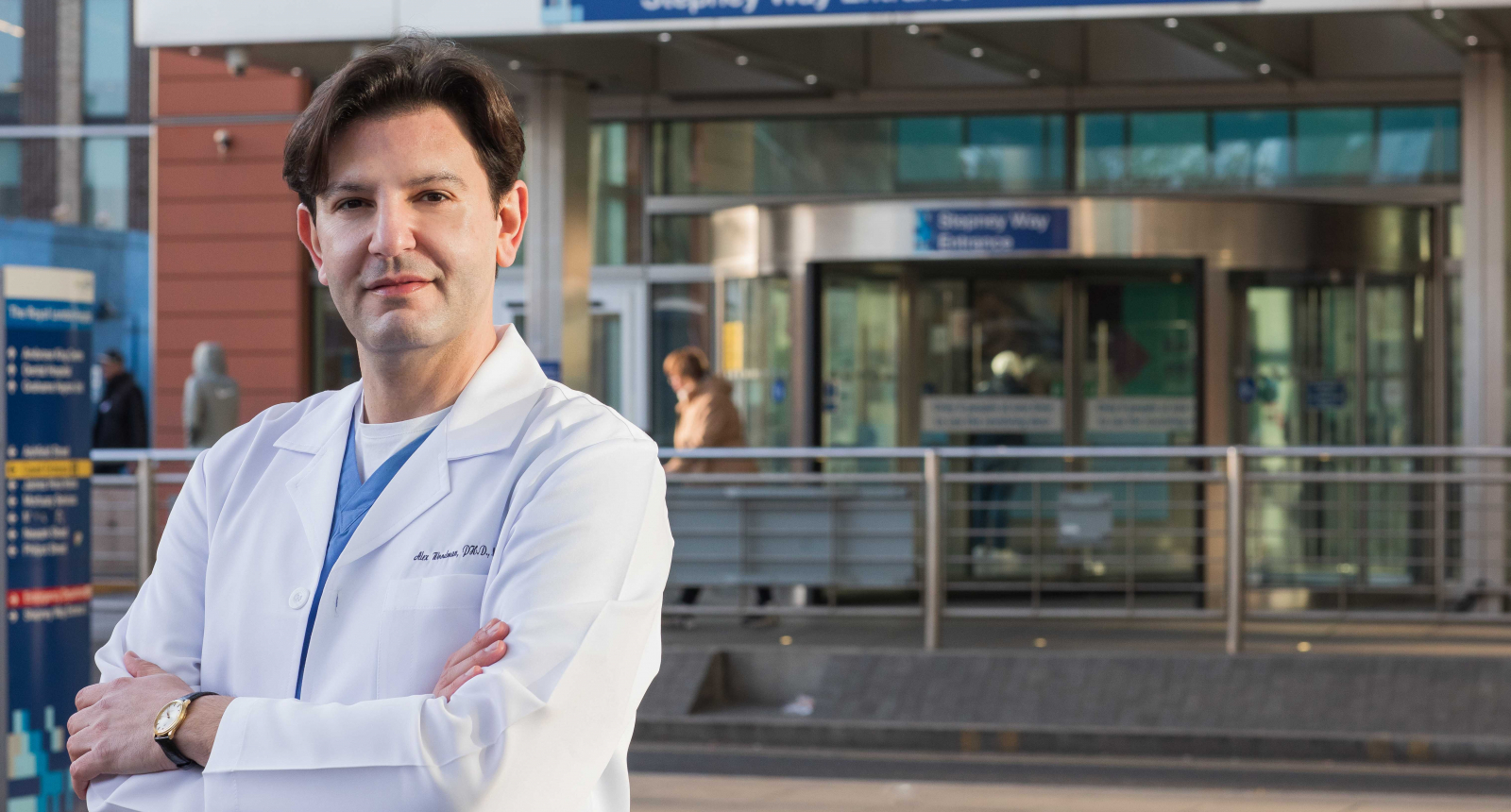We caught up with Dr Alexander Woodman, a PhD graduate who completed a clinical attachment at Barts NHS Trust. Alexander is passionate about bringing fresh ideas into healthcare and improving patient care, drawing on his impressive background in preventive medicine and experience supporting dietary research at the Arabian Gulf University.
Our chat with Alexander was a real eye-opener, taking us on a whistle-stop tour through his academic adventures and professional milestones.
What did you study at the University of Salford?
I started my PhD at Salford in 2018, focusing on diabetes, obesity, and different treatment approaches. I was especially interested in how young people in the Middle East think about nutrition including their eating habits, knowledge, and attitudes towards dietary guidelines.
My research used a rigorous mix of methods, blending data analysis with real-world insights. I didn’t just stick to one area, I dove deep into the roots of obesity, the delivery of health programmes across the Gulf, and even the role of epigenetics in obesity. It was a challenging but incredibly rewarding experience that really pushed me to think differently.
Why did you choose the University of Salford?
After studying at universities like UCLA and USC in the States, I was looking for something that would take me out of my comfort zone. I wanted to challenge myself further, and the UK’s reputation for academic excellence made it the obvious next step.
When researching where to go, Salford stood out. It wasn’t just about the strong academic reputation, it was the combination of top facilities, close industry links, and the opportunity for personal learning and real mentorship. I had a few offers from other UK universities, but Salford ticked all the right boxes for me, and my best friend was living near to Manchester at that time.
What are your favourite memories from your time at Salford?
Looking back, some of the moments I value most were also the hardest. Doing a PhD isn’t a walk in the park. The long hours of data collection and analysis really tested me. But those challenges shaped who I am today and prepared me for the real world.
Academically, I’m grateful to my supervisors and examiners for pushing me to be my best. Socially, I have fond memories of SPARC (Salford Postgraduate Annual Research Conference), a brilliant platform for sharing research and bouncing around new ideas. But more than anything, it’s the friendships and connections I made with fellow researchers from around the world that I’ll cherish forever.
What have been your biggest achievements since graduating?
After defending my thesis, I was honoured to receive a U.S. Fulbright Fellowship which was a dream opportunity. It’s awarded to researchers based on academic excellence and leadership potential, and it gave me the chance to continue my research in Bahrain, looking at how students there interact with the “Food Dome”, a key set of dietary guidelines created for the Gulf region.
Today, I’m proud to say I’ve completed a clinical attachment in endocrine medicine at Barts NHS Trust. It was a brilliant experience that’s helped me to better understand the UK’s healthcare system while sharing insights from my work in the Middle East. My aim is to help bridge the gap between different healthcare approaches and improve patient care through innovation and collaboration.

How did your time at Salford prepare you for success?
My time at Salford shaped me in more ways than I can count. Beyond the academic knowledge, the journey tested my resilience and broadened my understanding of health from medical, social, environmental, and economic angles.
It gave me the skills I needed to thrive not just in academia, but also in real-world healthcare environments like Saudi Arabia’s fast-evolving system under Vision 2030. That experience gave me a fresh perspective that I’m now bringing into my research.
What advice would you give to students who want a career in Preventive Medicine research?
Preventive medicine is such a wide field, you could find yourself working in anything from public health to space medicine! With AI becoming more integrated into healthcare, there’s even more opportunity to make a real difference.
My advice? Take time to reflect on what you want to achieve and the problems you’re passionate about solving. Challenge yourself constantly. If you stay curious and committed, you’ll be an incredible asset to whichever community you choose to serve.
We loved hearing about Alexander’s inspiring journey from Salford to Saudi Arabia and now supporting the NHS with innovative healthcare ideas. If you’d like to share your Salford story, we’d love to hear from you – get in touch at alumni@salford.ac.uk.

 GRADUATE VOICE
GRADUATE VOICE 
 Twitter
Twitter Facebook
Facebook Google+
Google+ LinkedIn
LinkedIn